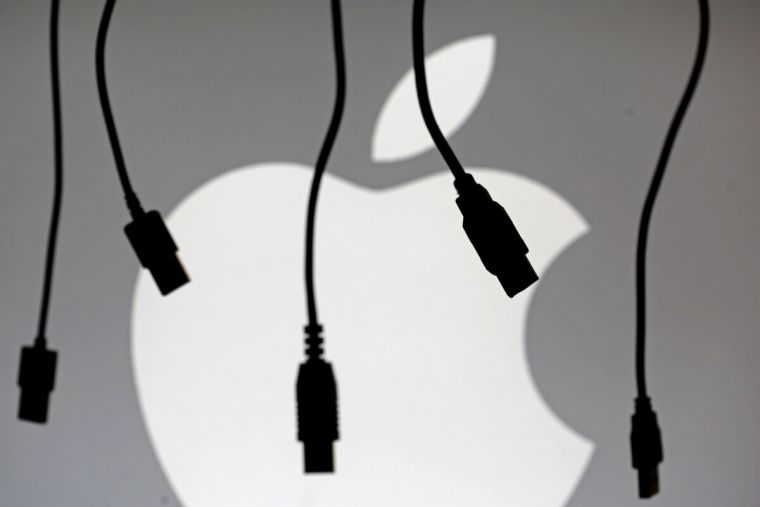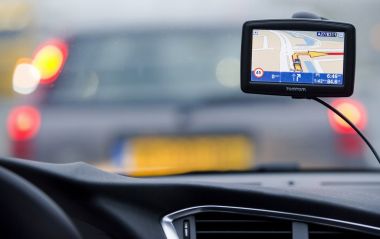Modern technology is ruining everything

Let me tell you a story.
I'm seven years old, maybe five, maybe 10, and my family is going on holiday in South Africa. My little brother and I nest in the back seat of my parents' mini-van, surrounded by cushions and blankets and little bags my mom has made up with puzzle books and comics and selected toys. We're not reading them or playing much, though. We've got my dad's Walkman. This is a while back, you understand, so the Walkman is a behemoth. Probably the size of a car radio, but with two headphone jacks, so my brother and I can listen to my dad's Beach Boys and Beatles tapes and recordings he's made from the radio of The Goon Show.
My nana sits knitting or doing a crossword in the middle row while we joke and squabble and play in the back, kilometres of African empty sailing past the windows. Time to kill. Distance to cover.
In the front, my parents are smoking. My dad's hair is long, my mom's is in a perm. Outside, apartheid is casting ugly shadows, but my brother and I don't know that. When we take our headphones off, inch-big speakers wrapped in squeaky foam rubber on sprung metal alice-bands, we hear my mom reading words and numbers to my dad.
Place names and distances. Odometer readings and estimated petrol use. When my dad is driving, mom reads the numbers and scribbles with a pen on a clipboarded typesheet. When mom drives, dad scribes. We're too young to understand, but they are marking progress on a route they have planned meticulously. Key points on the way, towns at which they must take a new road, the crucial distances between petrol stops and lunch-time picnic spots – all are tracked and ticked off. They know where we are going, and we always get there safely.
In the afternoons, as we siesta in the caravan by a game reserve fence or in the front room of a seaside cottage, a single sound pocks and punctuates the silence: my father's typewriter, clacking between the buzz of insects and the snore of a lazy afternoon. He is writing up the day's activities – the animals we saw, the places we went, amusing things my brother and I have said.
Later, weeks after we get home, the photographs he has taken will be printed, sorted, matched to the days, and my mom will paste them in between sections of my father's typed pages in big, cardboard-covered ledger books that will last at least until I'm 38. Records of countless family holidays, of children growing into men. Paper memories of younger versions of ourselves – frozen, living versions of people we loved.
Every holiday, from the picnic stops visited and sandwiches eaten to the lions seen and fish caught.
Pre-digital. Pre-GPS. Pretty damn good.
Swipe forward a few decades.

My wife and I on the road in Britain. Two youngish professionals in a black estate, making their way up to Scotland. No kids. No elderly relatives. No van. Thoroughly modern.
The car sound system switches between the downloaded radio shows on my phone and the audio books and music on our iPod, both devices held aloft by a small forest of branches growing out of the windscreen and dashboard.
The voices from the speakers must compete with the roar of the open windows and the steady, insistent tones of the lady in our satnav, guiding us towards a tiny cabin on the side of a loch in the north-western highlands.
Occasionally I take a picture of my wife on my phone, capture a video of a beautiful valley or an amusing sign on a truck. They upload automatically to the cloud. From time to time I send one to my mom in South Africa. I WhatsApp taunting holiday messages to my friends still at work. We drive through towns we couldn't name and along roads I'd never find again without the calm voice that lives in that little screen.
Afternoons are spent a little anxious. A little restless. The mobile and internet black spot by the loch has left me without the ability to Google, to text, to obsessively check social media every two minutes. It's nice. In a way.
My wife and I plug in an external hard drive and my laptop into the cabin's TV and we catch up on Game of Thrones, re-watch an old sitcom we like. Occasionally, while she loses herself in a book on her e-reader, I take my laptop down to the water and write short stories, like my Dad used to do when he wasn't writing logs of our holidays. And in the evenings, while I cook, the iPod plugs into the cabin hi-fi and we listen to a book, a podcast, some tunes specially downloaded for this trip.
At some point, I'll get round to sorting through the hundreds of photos I took and, straddling the line between smugness and self-effacement, I'll pop an ironically-named album up on Facebook.
Scroll down to the comments.
"Isn't that sad?"
"We're more connected than ever, and yet we're more isolated."
"Nobody knows where they are anymore. Nobody explores."
"Digital photography just isn't the same."
"Computers are cool, but don't you yearn for the real connection of a typewriter?"
"Nobody talks any more. They're always on their mobiles."
"Modern technology has ruined everything."
"It just sounds warmer on vinyl."
Please.
Hit Pause. No, actually, since you love the past so much, press Stop. The Walkman goes clunk. The video player makes a sound like Robocop having a stroke. Restarting will not be YouTube seamless.
Modern technology has a lot to answer for, I agree. It has, in many ways, ruined the world. That view is easy to find support for in any conversation with not terribly thoughtful people about the state of the world "these days". Only, the people tutting sadly at the dystopia technology has wrought are not thinking about the real technocalypse. Nuclear weapons? Nah. GM crops that make slaves of subsistence farmers? Nope. An automated industrial sector choking our water and air and filling our land with unprecedented levels of junk? Of course not, silly! The real problem is communications and entertainment! You know, the one area where technology has quite demonstrably improved our lives. That's what we should be worried about.
"I went to a friend's house yesterday and every member of the family was staring at their phone."
"You just can't communicate emotion in a text message."
"Nothing beats a good, old-fashioned map."
Except something does. A satnav. And do you want to know why you can't communicate emotion in a text? Because you're not a very good writer.
Flip backward through the pages, far closer to the title plate.
That family, transposed to a pre-digital era, is sitting in their parlour. Father reads a broadsheet, pipe-based smoke-signals his only communication with his wife and brood, who sit similarly transfixed. The children read comics. Mummy a novel. They pause briefly for a message from the king on the wireless.
"All this new technology," a nostalgic elderly relative mutters. "What was wrong with listening to a local soprano or watching a play?"
Now click on Home.
The fact is that technology has, for the most part, freed us and made us potentially more connected.
Maps are wonderful, but only if you're good at reading them, and only if they're accurate. The stress and worry of missing a turning in your directions and being lost and confused because you're not great with maps – as I am – dissolves when you have a satnav that can recalculate your route.
Car problems in unfamiliar places are less catastrophic now that we can use our phones to find a mechanic with the relevant part nearby. That we can use our phones at all while moving from place to place is a minor miracle. And while the downsides of constant potential distraction, availability and connectedness are real, we need not to hark back too much to an idealised past that never existed.
Before mobile phones, my family did spend a lot of time talking and playing board games. But we also spent a lot of time in the no less passive pursuits of watching TV and listening to music. Music on records and CDs so easily scratched that we developed elaborate rituals for keeping our magic discs clean and safe while using them.
People who sniff and sneer at the iPhone generation who seem incapable of experiencing life without the mediation of the cameraphone are longing for a time they can only picture, literally, because some tech-savvy photo-zealot was, armed with a flashbulb and a hood over their head, prepared to mediate their own experience of what we now think of as a simpler time.
And, hey, it was. The ubiquity of communications and media technology, their creep into every aspect, location and moment of our lives, is a phenomenon to be monitored carefully. But also to be celebrated – not written off with too-easy platitudes about how much more connected and social we were before constant connection and social media.

The reason I was anxious and nervous while deprived of precious wifi in darkest Scotland was not because I'm addicted to technology. I'm addicted to people. I was not missing the smooth interface and simple reliability of WhatsApp (though I do appreciate it), but the people it allows me to communicate with, far more than the amount of time we spend face to face could ever hope to provide.
And yes, it's sad that I don't pay more attention to the areas of Britain I'm driving through as I slavishly follow the instructions of a disembodied voice from a dinky little screen. But without that voice and that screen, there is simply no way I would have ventured this far north, this far off the beaten track. The security it brings has given me confidence. Freedom.
The same can be said of my phone. Perhaps it's sad that we have lost the imperative to plan ahead, in detail, where we will be and where we will go, so that our loved-ones don't worry. But it's a lot nicer, isn't it? Have we become slack and unreliable because of the safety net that "Sorry babe, running late. There in 20. Xx" gives us? Some of us have. Others have found tools to organise themselves to within an inch of a reasonable life.
And that's fine. Slackers are going to slack. Communicators are going to communicate. Those more interested in passive experience than active engagement are going to bury their heads in something. And while some of the changes that so alarm commentators and coffee-point concern-mongers are about technology, most are just about the passing of time. Change.
My mom had to create and follow route schedules far less when large, regular roadside services became the norm. My brother and I soon needed separate tape players, because our personalities and musical tastes diverged. Typewriters turned electric and were briefly replaced by video cameras. But my dad still writes. He and mom still plan every trip meticulously.
And while I envy his collection of holiday log books, I am the only person who ever reads them and ours is the only family I know who has them. It's not my mobile or twitter or these apps they have these days that prevent me from diligently recording my life like he did. It's that I can't be bothered.
You can blame that on Facebook if you like. I think it's probably a little more complicated than that.
Follow @JontyLangley on Twitter.











